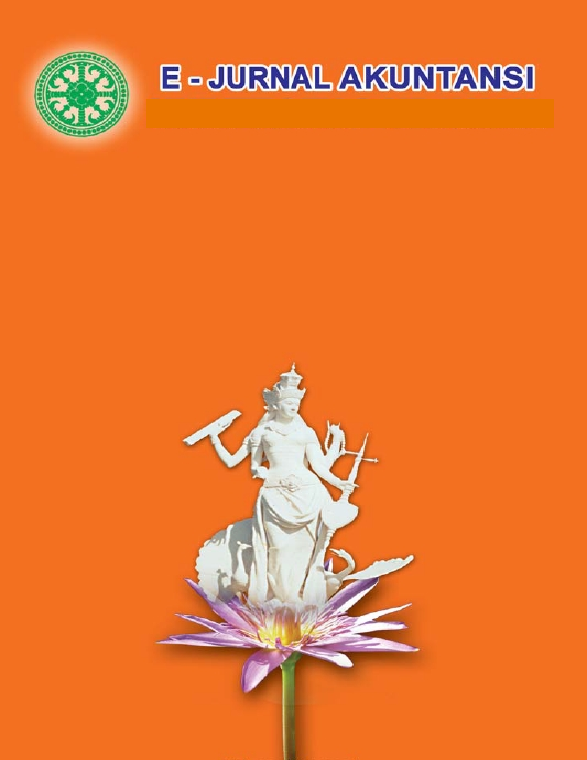IT-Based Financial Management and Governance Training Role Toward Village Government Employee Understanding on Financial Management
Abstract
This research aims to test the information technology-based financial management and governance of village government to optimize the village financial management in local government of Indragiri. The research method is done by giving survey questionnaires to 100 of village government employees. A paired sample t-test is used to test the capability of the employees in managing the financial before and after the training. The result shows that there is an increase in capacity in financial management and governance by all the village government employees. The theoretical maximum score from the respondents is 50, and the minimum is 10, so the average score is 30. Based on the data above, before the training, the employee’s understanding scores are below the average score, i.e., 24, 15. After the training, the employee’s understanding increases above the average score, i.e. 38, 77.
Keywords: Village Government Employees; Training; Financial Governance.
Downloads
References
Bastian, I. (2017). Public Sector Accounting. Jakarta: Erlangga.
Budiono, V. S., Muchlis, M., & Masri, I. (2018). Analisis Pengaruh Pendidikan dan Pelatihan, Pengalaman Kerja Serta Pemanfaatan Teknologi Informasi terhadap Kualitas Laporan Keuangan Pemerintah Daerah (Studi Kasus Pada Pemerintah Kota Depok). Jurnal Ilmiah Wahana Akuntansi, 13(2), 110-128.
DiMaggio, P. J., & Powell, W. W. (2000). The iron cage revisited institutional isomorphism and collective rationality in organizational fields Economics meets sociology in strategic management (pp. 143-166): Emerald Group Publishing Limited.
Ghozali, I. (2016). Aplikasi Analisis Multivariete IBM SPSS 23 (Vol. 23). Semarang: Badan Penerbit Universitas Diponegoro.
Halen, H., & Astuti, D. D. (2013). Pengaruh Tingkat Pemahaman, Pelatihan dan Pendampingan Aparatur Pemerintah Daerah terhadap Penerapan Accrual Basis dalam Pengelolaan Keuangan Daerah di Kabupaten Jember (Studi Kasus pada Dinas Pemerintahan Kabupaten Jember). RELASI: JURNAL EKONOMI, 18.
Herlin, H., & Effendi, Y. (2017). Pemahaman Aparatur Pemerintah terhadap Penerapan Akuntansi Keuangan Demi Terciptanya Good Governance. Ekombis Review, 5(1), 55161.
Kim, G., Shin, B., Kim, K. K., & Lee, H. G. (2011). IT capabilities, process-oriented dynamic capabilities, and firm financial performance. Journal of the Association for Information Systems, 12(7), 1.
Muzahid, M. (2014). Pengaruh tingkat pendidikan, kualitas pelatihan, dan lama pengalaman kerja pegawai terhadap kualitas laporan keuangan Satuan Kerja Perangkat Daerah (SKPD) di Kabupaten Aceh Utara. Jurnal Akuntansi (Media Riset Akuntansi & Keuangan), 2(2), 179-196.
Nurkhamid, M. (2008). Implementasi Inovasi Sistem Pengukuran Kinerja Instansi Pemerintah. Jurnal Akuntansi Pemerintah, 3(1), 45-76.
Sofyani, H., & Akbar, R. (2013). Hubungan Faktor Internal Institusi dan Implementasi Sistem Akuntabilitas Kinerja Instansi Pemerintah (SAKIP) di Pemerintah Daerah. Jurnal Akuntansi dan Keuangan Indonesia. Jurnal Akuntansi dan Keuangan Indonesia, 10(2), 207-235.
Sofyani, H., Akbar, R., & Ferrer, R. C. (2018). 20 Years of Performance Measurement System (PMS) Implementation in Indonesian Local Governments: Why is Their Performance Still Poor?. Asian Journal of Business and Accounting, 11(1), 151-227.
Sofyani, H., Riyadh, H. A., & Fahlevi, H. (2020). Improving service quality, accountability and transparency of local government: The intervening role of information technology governance. Cogent Business & Management, 7(1), 1735690.
Sofyani, H., Suryanto, R., Wibowo, S. A., & Widiastuti, H. (2018). Praktik Pengelolaan dan Tata Kelola Pemerintahan Desa Dlingo di Kabupaten Bantul: Pembelajaran dari Desa Percontohan. Jati: Jurnal Akuntansi Terapan Indonesia, 1(1), 1-16.
Wungow, J. F., Lambey, L., & Pontoh, W. (2016). Pengaruh tingkat pendidikan, masa kerja, pelatihan dan jabatan terhadap kualitas laporan keuangan pemerintah Kabupaten Minahasa Selatan. Jurnal Riset Akuntansi dan Auditing " GOODWILL", 7(2).

This work is licensed under a Creative Commons Attribution-ShareAlike 4.0 International License.

















